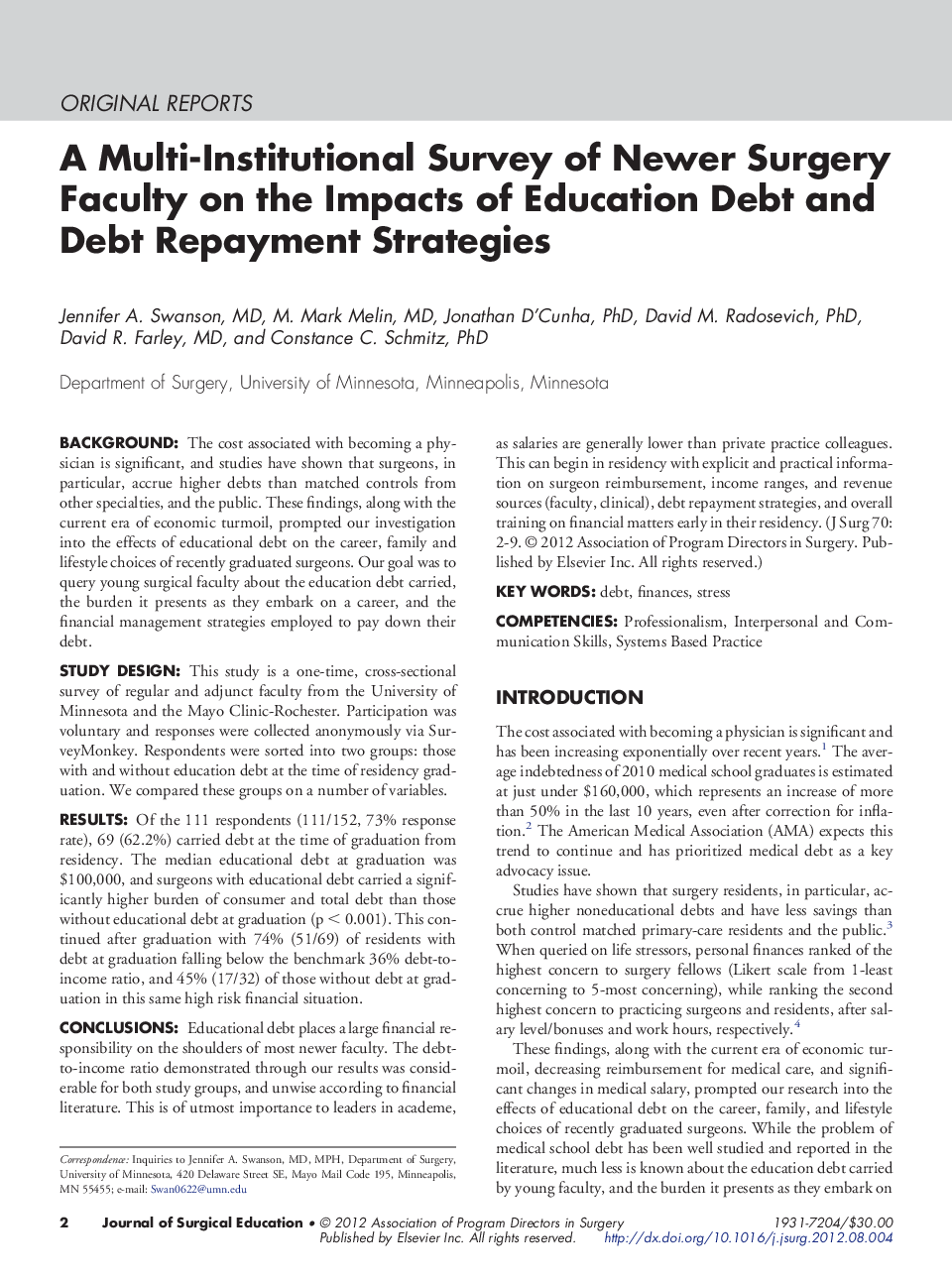| کد مقاله | کد نشریه | سال انتشار | مقاله انگلیسی | نسخه تمام متن |
|---|---|---|---|---|
| 4298322 | 1288350 | 2013 | 8 صفحه PDF | دانلود رایگان |

BackgroundThe cost associated with becoming a physician is significant, and studies have shown that surgeons, in particular, accrue higher debts than matched controls from other specialties, and the public. These findings, along with the current era of economic turmoil, prompted our investigation into the effects of educational debt on the career, family and lifestyle choices of recently graduated surgeons. Our goal was to query young surgical faculty about the education debt carried, the burden it presents as they embark on a career, and the financial management strategies employed to pay down their debt.Study DesignThis study is a one-time, cross-sectional survey of regular and adjunct faculty from the University of Minnesota and the Mayo Clinic-Rochester. Participation was voluntary and responses were collected anonymously via SurveyMonkey. Respondents were sorted into two groups: those with and without education debt at the time of residency graduation. We compared these groups on a number of variables.ResultsOf the 111 respondents (111/152, 73% response rate), 69 (62.2%) carried debt at the time of graduation from residency. The median educational debt at graduation was $100,000, and surgeons with educational debt carried a significantly higher burden of consumer and total debt than those without educational debt at graduation (p < 0.001). This continued after graduation with 74% (51/69) of residents with debt at graduation falling below the benchmark 36% debt-to-income ratio, and 45% (17/32) of those without debt at graduation in this same high risk financial situation.ConclusionsEducational debt places a large financial responsibility on the shoulders of most newer faculty. The debt-to-income ratio demonstrated through our results was considerable for both study groups, and unwise according to financial literature. This is of utmost importance to leaders in academe, as salaries are generally lower than private practice colleagues. This can begin in residency with explicit and practical information on surgeon reimbursement, income ranges, and revenue sources (faculty, clinical), debt repayment strategies, and overall training on financial matters early in their residency.
Journal: Journal of Surgical Education - Volume 70, Issue 1, January–February 2013, Pages 2–9